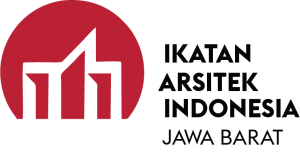Adaptasi Perumahan terhadap Kebutuhan Generasi Milenial Pasca Pandemi COVID-19 di Indonesia
Sari
ABSTRAK
Penelitian ini bertujuan untuk mengetahui perubahan dan adaptasi perumahan dalam menghadapi Pandemi COVID-19. Penelitian ini berfokus pada persepsi generasi milenial terhadap ruang di tempat tinggal yang kemudian dievaluasi kualitas ruang berdasarkan persepsi responden. Subyek ini dipilih karena kelompok usia ini mendominasi demografi, sehingga generasi millenial adalah target pasar utama perumahan. Penting bagi penyedia perumahan, baik lembaga perumahan swasta maupun negara, untuk beradaptasi terhadap perubahan-perubahan ini, terutama setelah Pandemi. Penelitian ini menggunakan pendekatan kualitatif dan kuantitatif. Penelitian ini melibatkan total 113 responden yang sebagian besar berdomisili di Pulau Jawa. Data kualitatif diperoleh melalui wawancara mendalam dan pertanyaan terbuka dalam survei. Data kuantitatif diperoleh melalui dua kali survei dan kemudian dianalisis menggunakan metode deskriptif-kuantitatif. Hasilnya menunjukkan bahwa meskipun tingkat kepuasan penghuni cukup memuaskan (71%), namun kualitas ruang di rumah tinggal belum mencukupi kebutuhannya yang semakin meningkat. Banyak dari generasi milenial yang sebagian besar bekerja di rumah, tidak memiliki ruangan yang layak, furnitur yang ergonomis, pencahayaan yang memadai, dan ventilasi udara untuk bekerja. Sebagian besar rumah mereka juga kekurangan ruang yang dibutuhkan setelah Pandemi, seperti beranda, musala, dan sensor tanpa sentuhan. Masukan ini akan membantu penyedia perumahan membangun rumah yang beradaptasi dengan meningkatnya kebutuhan generasi milenial setelah Pandemi.
Kata kunci: Adaptasi Perumahan, Milenial, Pandemi, Persepsi Ruang
ABSTRACT
The study aims to discover housing adaptability in the face of the COVID-19 Pandemic. It focuses on Millennials' perception of the spaces at their home, then evaluating the quality of space based on their perception. The subject was chosen as the people in this age bracket dominate the demography, meaning millennials are the primary target market for housing. It is essential for housing providers, both private and state housing agencies, to adapt to these changes, especially after the Pandemic. The study uses both qualitative and quantitative approaches. The study included a total of 113 respondents who reside mainly in Java Island. The qualitative data is obtained through in-depth interviews and open questions in a survey. The quantitative data is obtained through two surveys and then analyzed using the descriptive-quantitative method. The result shows that even though the residents' satisfaction level is quite satisfactory (71%), the quality of space in their home is not sufficient for their growing needs. Many of these millennials, which work primarily at home, do not have a proper space, ergonomic furniture, adequate lighting, and air ventilation for working. Most of their homes also lack few spaces needed after the Pandemic, such as porch, prayer room, and no-touch censor. This input would help the housing providers build houses that adapt to the growing needs of millennials after the Pandemic.
Keywords: Housing Adaptability, Millennials, Pandemic, Perception of Space
Kata Kunci
Teks Lengkap:
PDFReferensi
BBC, “Coronavirus: Where can I go on holiday? A guide to destinations - BBC News,” BBC News. Accessed: Sep. 23, 2021. [Online].
J. McEvoy, “Canada, Mexico Extend Restrictions On U.S. Visitors: Here Are All The Countries Curbing American Travel,” Forbes.com. Accessed: Sep. 23, 2021
A. Ledsom, “New EU Travel Restrictions, Country By Country, As Covid-19 Rates Soar,” forbes.com. Accessed: Sep. 23, 2021.
S. Meixner, “Australia’s outbound travel ban is one of the strictest coronavirus public health responses in the world - ABC News,” ABC News. Accessed: Sep. 23, 2021.
UNESCO, “Education: From disruption to recovery,” UNESCO. Accessed: Sep. 23, 2021
S. Lund, A. Madgavkar, J. Manyika, S. Smit, K. Ellingrud, and O. Robinson, “The future of work after COVID-19 | McKinsey,” McKinsey. Acce ssed: Sep. 23, 2021.
D. Nurita, “Breaking News: PPKM Diperpanjang hingga 4 Oktober, di Jawa Bali Tak Ada Level 4 - Nasional Tempo.co.” Accessed: Sep. 23, 2021.
S. Mashabi, “6 Bulan Pandemi Covid-19: Catatan tentang PSBB dan Penerapan Protokol Kesehatan... Halaman all - Kompas.com,” Kompas. Accessed: Sep. 23, 2021.
R. N. Mulyana, “Covid-19 melonjak, Indonesia Property Watch: Pasar properti bisa terkontraksi 5%-10%,” Kontan. Accessed: Sep. 24, 2021.
Departemen Kesehatan Republik Indonesia Direktorat Jenderal Pembinaan Kesehatan Masyarakat Direktorat Bina Upaya Kesehatan Puskesmas, “Pedoman Pengukuran Kesegaran Jasmani,” Jakarta, 1994.
S. Prasasti and E. T. Prakoso, “KARAKTER DAN PERILAKU MILINEAL: PELUANG ATAU ANCAMAN BONUS DEMOGRAFI,” Onsila Jurnal Ilmiah BK, vol. 3, no. 1, pp. 10–22, 2020.
V. V. E. Manguma, “Strategi Generasi Millenial Bertahan Hidup Dalam Masa Pandemi Covid-19,” Emik, vol. 4, no. 1, pp. 84–97, Jun. 2021.
DOI: https://doi.org/10.26760/rekakarsa.v10i3.11497
Refbacks
- Saat ini tidak ada refbacks.
ISSN elektronik 2338-6592
Diterbitkan oleh :
Program Studi Arsitektur, Fakultas Arsitektur dan Desain,
Institut Teknologi Nasional Bandung
Alamat : Gedung 17 Lantai 1 Jl. PHH. Mustofa 23 Bandung 40124
Kontak : Tel. 7272215 (ext. 151) Fax. 7202892
Email : rekakarsa@itenas.ac.id
Terindeks :
Didukung Oleh :
1.png)

Kerja Sama :
Jurnal ini terlisensi oleh Creative Commons Attribution-ShareAlike 4.0 International License.




